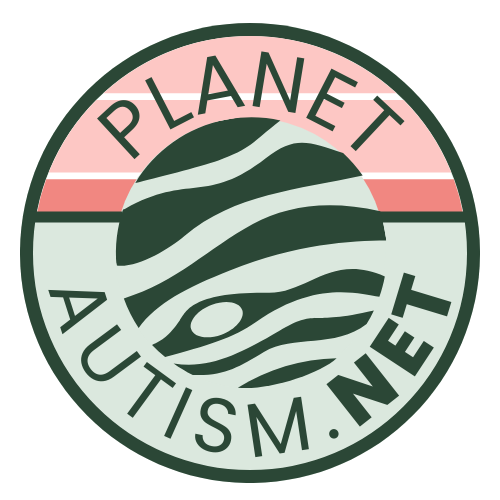
[Author’s Note: I am autistic with ADHD and other assorted neurodivergences. In February of 2024, I decided to be more open and vocal about who I am. I started posting items on LinkedIn because I already had an account and because I wanted to talk about autism in the workplace. I started by liking and reposting comments that others had made about autism. This was the first post in which I spoke openly about my autism.]
Today, someone asked me what she could do to make life (at work) easier for me in particular and other autistic people in general. Here are some of the things I should have said. And also some of why I couldn’t say them at the time.
Understand that if you ask this kind of question to an autistic person, the conversation may not unfold in the way that you expect. I need time to answer a question. Any response you get in the moment will likely be superficial. And then come the follow-up emails.
If we’re having even a casual conversation in person, on a video call, or on the phone, my brain is running at a million miles an hour.
I’m worried about physical things:
— Am I making enough eye contact? Too much eye contact? Where am I looking when I look away?
— How’s my facial expression? Body language? Posture? Am I doing that thing with my lip?
— Am I facing the person I’m talking with?
— Am I keeping my feet still? My hands?
— Am I moving around in my chair?
— Should I nod? Was that comment nod-worthy? Am I nodding too much?
— Should I make a hand gesture? Which one? How often? How big?
I’m worried about what I’m saying
— Has the ADHD kicked in? Have I actually finished a sentence or do I keep starting new ones?
— Are the things that I’m saying “socially appropriate?” Relevant to the conversation?
— How’s my tone of voice? Not angry or hostile?
— Are the words even coming out in the right order?
— Have I said the same thing too many times?
— Does this person have any clue what I’m trying to say?
I’m worried about what you’re saying
— Do I actually understand what you mean, or do I just think I understand?
— Where is this conversation going?
— Are you about to ask me something?
— Should I make some kind of sympathetic agreement noise while you are talking? Which one? How often?
— Are you being serious? Sarcastic? Joking? Is there some subtext that I’m missing?
I’m worried about what’s going on inside my head
In many ways, having a conversation with anyone is like trying to have a conversation in a foreign language. A foreign language that I studied for a couple of years in high school and haven’t used since. You’re talking, and I am desperately trying to translate what you are saying while coming up with the vocabulary for what I want to say in response.
With 90% of my mental capacity focused on the mechanics of having a conversation, that leaves only 10% to actually process the content of what is being said. If you ask me a question, all my brain is going to come up with is “404 error, page not found.”
The amount of energy I have for social interaction is finite, and conversations can drain that energy rapidly. And once it’s gone, I’m done. I will find the shortest possible line between me and the end of the conversation, and I will follow it. And heaven help anyone between me and the exit. I can either run away from the conversation and let you think that I’m rude, or I can stay, risk a meltdown or a shutdown, and let you think I’m a freak. Not a great choice. If I say “I need to go,” you need to let me go.
So how do you talk with an autistic person?
Autism is complicated. Depending on which article you read, there may be as many as 800 genes associated with autism. Which means that — at least in theory — every person on the planet could have a completely different combination of these genes. Then there are possible developmental factors. And possible environmental factors. And more.
Everything that I’m saying is true. For me. It may or may not be true for other autistic people. It may or may not apply to other neurodivergent people.
Let’s say you know someone, and you’re pretty sure that person is autistic. And you want to support that person by finding out if there is anything you can do to make their life a little better. You can’t come in the front door with “Hey, you’re autistic…” The conversation will be over before it begins. For at least 2 reasons.
First, this person may not know that they are autistic. I’m 55 years old. I was formally identified as autistic within the past year, although I knew who I was long before that. But for most of my life I didn’t know. I thought I had social anxiety. I thought I had Tourette’s Syndrome. I thought a lot of things. Mostly I thought I was broken or defective because I couldn’t do all of the things that seemed easy for everybody else. If you had approached me 5 years ago and told me I was autistic, I would have thought you were crazy. And I would have been insulted. Because I believed the same pop-culture definition of “autistic” that is still dominant today. And I wasn’t that.
Second, if this person does know that they are autistic, they may not be ready to talk about it. They may not be ready to talk because there is a considerable stigma associated with the term “autism.” Hiding, or “masking,” their autism may seem like a good survival strategy in the moment. They may not be ready to talk because they don’t feel that they know you well enough. They may not be ready to talk because it is not the right time or place for that kind of conversation.
For many autistic people, all spontaneous social interactions need to be approved in writing 8–10 business days in advance. OK. That’s a little bit of an exaggeration. But only a little. An unexpected conversation, no matter how trivial, can cause a huge surge of stress for an autistic person. But if your opening line is “Hey, you’re autistic….” then I know that this isn’t going to be a trivial conversation.
The simple solution is to avoid the Big Conversation. Start with some small questions. “I will get that information to you. Would you prefer a call, email, text? What works best for you?” Now you’ve given me a non-confrontational, simple way to express my communication preference.
Or “I’d like to talk to you about [topic]. When would be a good time?” Now you’ve given me a chance to prepare myself before we talk. And always, always, always tell me what the conversation will be about. If you make me guess, I’m going to come up with a dozen terrible possibilities and stress about all of them. If you ask enough of those questions, and give me what I need, then maybe we can have a Big Conversation some day.
But the Big Conversation isn’t the goal. The goal is for us to understand each other. To communicate better. To make each other’s lives easier. Always remember that autistic people are, in fact, people. We just want to be treated accordingly.

This was one heck of a helpful blog.
The reality of being a person is far from just getting chores done on time like a robot.
We as people need communication, but autistic people?
We need a bit more understanding when it comes to not overloading our plate with “something came up”, “we need to talk” and other things thrown at us.
Congratulations! You win the (imaginary) trophy for being the first person to comment on my new site!
Thanks for your support. And I will definitely talk more about phrases like “can we talk later” in another post.